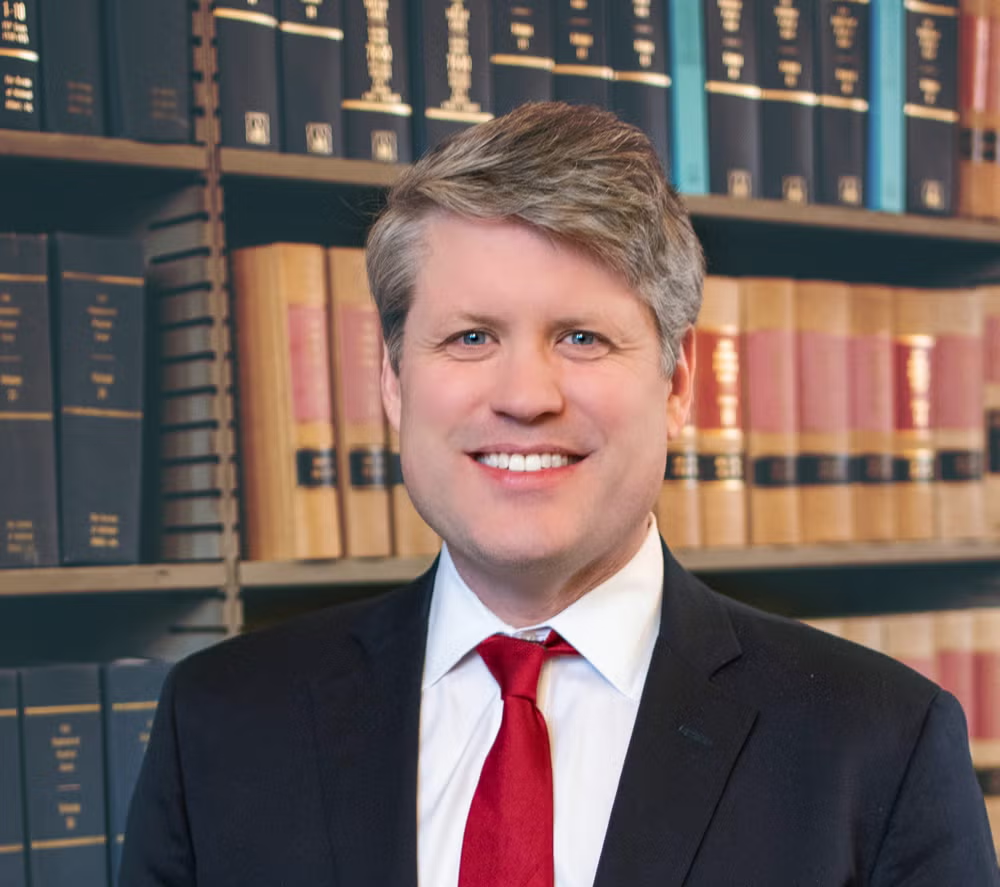LINCOLN, Neb. (WOWT) – Nebraska Attorney General Mike Hilgers said Wednesday that the Omaha Tribe’s proposed tax compact was too big an “ask” for the state, stopping short of denying the state’s decision to end negotiations was connected to the tribe’s plans for medical marijuana sales.
“Nebraska’s not forced to do anything. We’ll respond in due course,” Hilgers said about the tax compact in a news conference on an unrelated matter.
The Omaha Tribe has claimed that Hilgers is retaliating against their medical marijuana program by ending negotiations — which the tribe said were fairly new — on an unrelated tobacco tax compact that would have allowed the tribe and state to share revenue from Nebraska’s tobacco sales tax.
Nebraska Attorney General Mike Hilgers said Wednesday that the Omaha Tribe’s proposed tax compact was too big an “ask” for the state.
When asked Wednesday about the negotiations, Hilgers said he would speak more generally about tax compacts to clear up share the state’s perspective about how they work.
“A tax compact is a arms-length transaction, a contract between two sides. No one — no tribe — has any right to a compact. None. Nebraska has no obligation to enter into a compact,” he said.
The only reason they would, he said, is when both sides can benefit, referencing compacts that the state has made with the Santee Tribe.
“When we met with the [Omaha Tribe] members, what they asked for was a 90% cut of state tax revenue,” Hilgers said. “…Now if you ask them question: ‘What does the state get for that?’ The answer is nothing, actually. The state gets no real material compliance, uh, benefit. The state really gets no benefit at all.”
The attorney general said that what the state would actually get in a return is “a proposed unlawful, recreational — a proposed medicial marijuana scheme that’s unlawful under Nebraska law” because they’re not licensed and that the marijuana products would likely be sold to non-citizens.
“So we’re gonna violate your law, we’re gonna sell a poison contrary to your law — to your citizens. You’re gonna have to deal with the fallout, State of Nebraska. You’re gonna have to deal with the cost of that. You’re going to have to deal with your citizens having adverse affects, psychosis or other — or committing crimes from the marijuana. So you give us 90%, you give us several hundred-thousand dollars; and in exchange, you get nothing — but actually we’re going to break your laws and sort of thumb your nose at the Nebraska state statute,“ Hilgers said. ”So that has been the ask.”
Talking with First Alert 6 this week, Tribal Attorney General John Cartier insisted it was retaliatory. The negotiations between the Omaha Tribe and the State of Nebraska were fairly new, he said, Cartier said he called Hilgers directly after receiving the call from the state about the tobacco tax compact — an hour before the tribe’s first cannabis commission meeting.
“It was certainly retaliation. That was what was said explicitly to me over the phone,” Cartier told First Alert 6 on Tuesday.
The attorney general said Wednesday that he wasn’t going to discuss private conversations, and affirmed that a response would be provided once he and the governor had fully discussed the matter.
“I’m not gonna do that. I’m not gonna talk about my private conversations that I had with anyone. When Nebraska speaks on this issue, we’ll do it through a written response to the Omaha Tribe,” he said.
Cartier also said state officials are planning to station state law enforcement around the tribal border in an effort to stop people from leaving the reservation after purchasing marijuana legally.
Hilgers said that if the Omaha Tribe doesn’t have a dispensary or cultivator license, then they couldn’t sell medical marijuana to anyone but members of the tribe.






